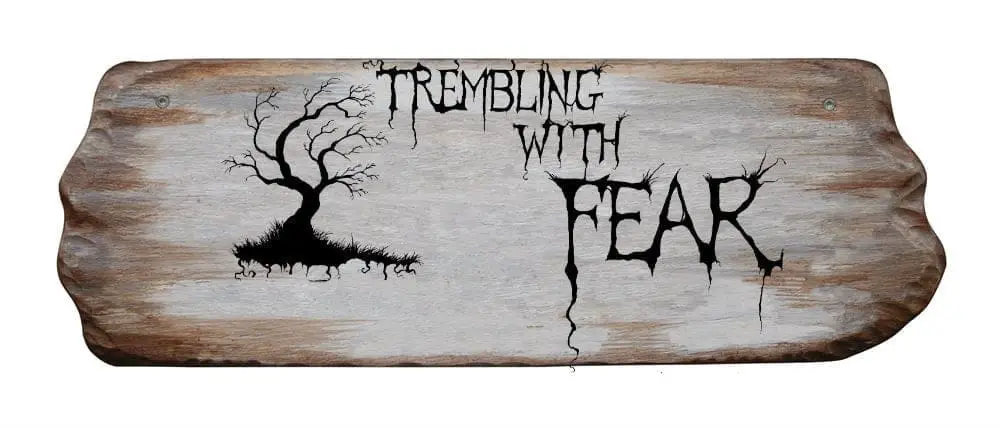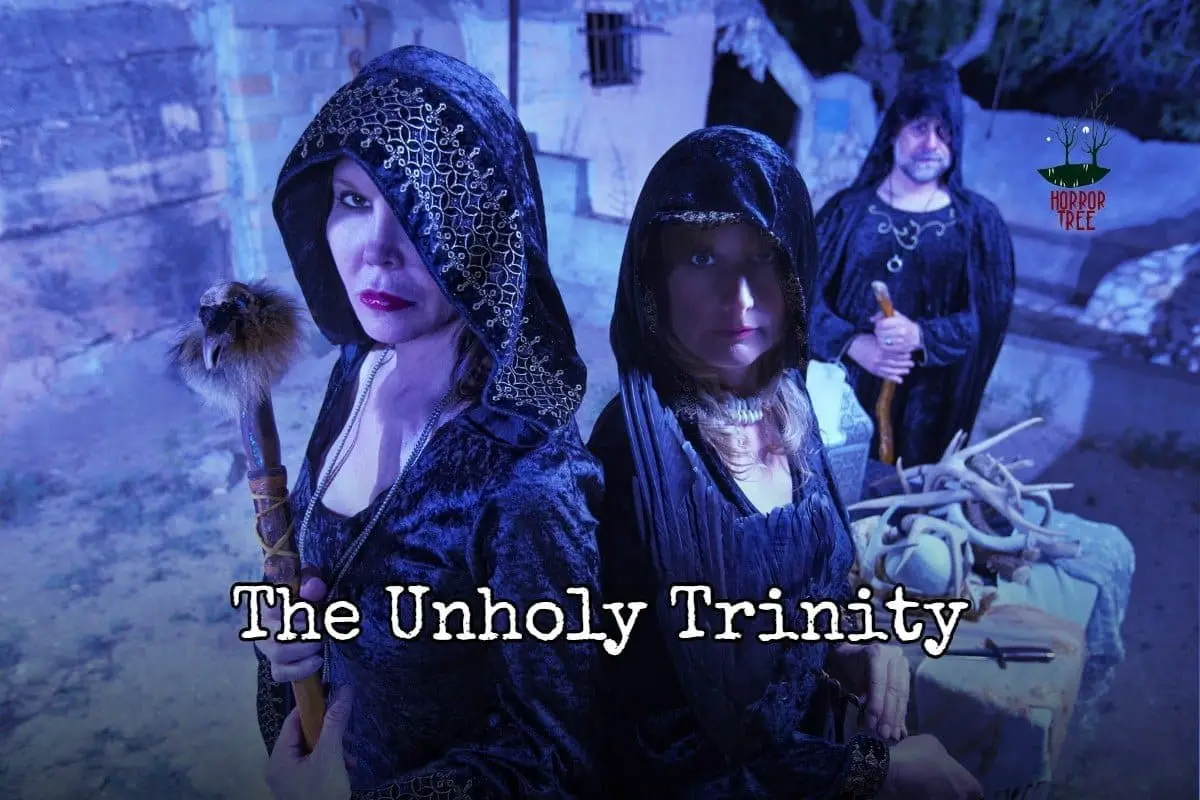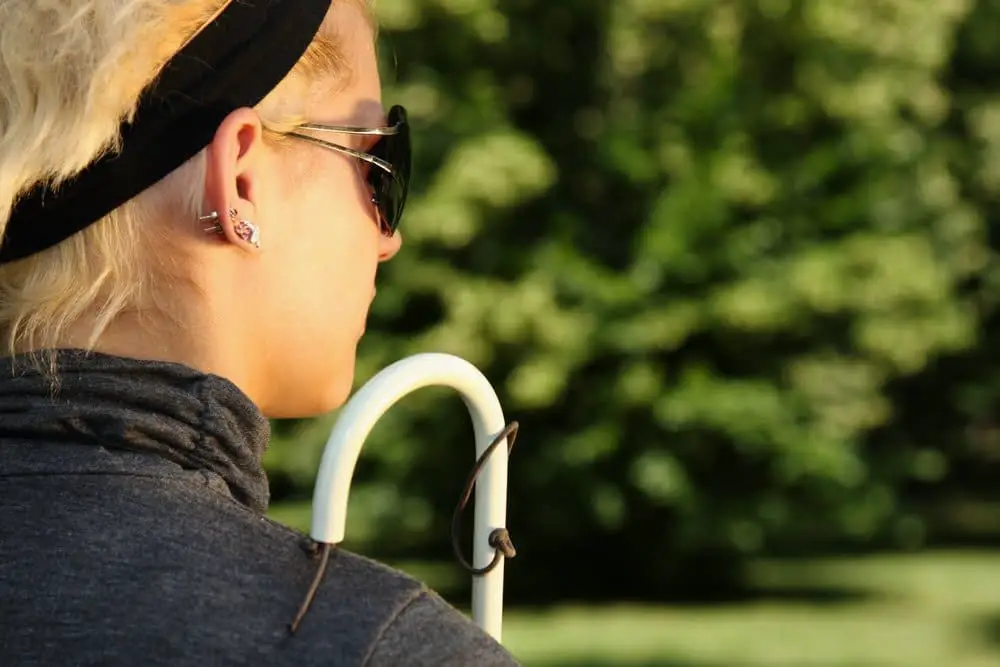Trembling With Fear 01/26/2020

Welcome to another edition of Trembling With Fear. We’re only a few weeks in to the New Year but already the world around us is beginning to resemble those celluloid imaginings of many a post-apocalyptic film. Fires rage out of control and a new virus jumps from animal to human causing concern amongst governments. Who needs horror when we’ve got all this going on? Answer we do. We can write reality onto the page and work out our fears in safety. Horror writing is a catharsis of many a nightmare.
Now to the nightmares in Trembling With Fear. The first story up is A Country Cottage by Fiona Jones. The writer paints a perfect picture postcard image of the rural idyll. So many little details of flowers and foliage are coloured in, with just the right hint of something dark lurking beneath those plants and within the cottage itself. Gradually the sense of colour changes, the dark rises up and out. The contrast and the change in the balance of colour moves the story along as well as the physical interaction with the cottage’s owner.
Bone Tree by Catherine Berry is typical of the torments of a younger sibling at the hands of their older brother or sister. The story leads to a nightmare or is it real? Childhood fears and torments are always a rich source for material.
7% by Melissa Elborn reminds us of the stuff of life, what is truly central to our survival – almost simply so.
Zombie Prank by Norbert Gora focusses on the conflict between what you know is real or unreal and what you see. Playing on this idea of the possible versus the impossible and what a person believes can lead to many interesting scenarios.
Steph
Ahh, Valentine’s Day…a celebration of undying love and romance, a time to do something special for the one you love. But it’s not all hearts and flowers, is it? For the upcoming Valentine’s Special, we’re looking for stories that crawl upon the underbelly of romance…obsession, crimes of passion, and love that continues perhaps long after it should. Relationships that have run their course. Evil deeds done in the name of love. Love letters to the damned.
Need to get rid of the foul taste of bad romance? Pick up your poison pen and write about it. Send us your short stories, drabbles, and Unholy Trinities that reflect upon the dark side of love.
Stories can be sent directly to Catherine at [email protected]
As you’re reading this, my project for work has launched and I (in theory) have some breathing room again! We’ll see if that actually happens but I’ll need to play catch up wither way.
A couple key notes!
- TWF needs more shorts and drabble! (Specifically drabble) 😉
- Our WIHM features aren’t full yet. If you’d like to contribute, PLEASE reach out to [email protected] soon!
- I’ll be hunting down a cover in the coming weeks and we can hopefully push forward on our next anthology release soon!

A Country Cottage
A sweet, chocolate-box picture of an old cottage: thatched, low-gabled, timbered in mediaeval style, with leaded windows. A traditional-style garden: rambling roses on trellises against the house, geraniums in flowerpots, lavender at the borders, sweet peas in hanging baskets beside the door. Scents and colours crowded so vividly you would never notice the slender green-black spikes of something like cacti standing here and there between the livelier plants, pushing upwards from every patch of soil—even from the red clay flowerpots and painted window-boxes.
“Eh, I know who lives up along there,” Mr Parry said. “Course I do, lived here going on eighty-nine years myself. Old Mrs Kennaway, that’s her. Old as the hills she is. You want to steer clear of her.” He shook his head and would say no more.
Mrs Kennaway pottered in her garden on fine mornings, a small, tidy-looking figure always in floral pinks. Her eyes, pale-grey and slightly dazed in expression, seemed to look past you, but she would pass the time of day in a mildly plaintive, faraway voice. She would offer a newly-potted flower or a home-baked scone, or invite you in to share a pot of tea in delicate china cups and saucers.
A smell of fresh baking seemed always to fill her cottage; and under that, the clean-swishing scent of laundry—and below that again, a hint of lavender, thin-bluish as a distant plume of wood-smoke. You would have to have a keen nose indeed to discover, beneath it all, the iron tang of blood, old blood, impure like the fluids of an uncleaned wound.
Strangers, tourists, would pause by Mrs Kennaway’s front gate to admire her classic little dwelling. They marvelled at the old-fashioned cottage with its beautifully-preserved windows and perfect thatch, or they gazed in delight at her picturesque old garden, brimming with all the right blooms in all the right places. They would photograph the scene, and some would return to photograph it again, disappointed with their first attempts, which never seemed to capture the beauty of the place.
A long-established garden will withstand a few months of neglect without any startling change. When the doors and windows of the picture-postcard cottage stayed shut for three months and more, the garden hardly seemed to alter. Only a few of the red-potted geraniums, standing out of rain, withered, leaving pointed, thorny dark spikes visible in their place. All the other foliage and flowers still thickly disguised the long, fanglike growths intruding into their midst.
“Eh, well, it’s been a while now,” Mr Parry said. “She’s in the hospital, just a chest infection, but she’d nearly died this last Easter, and they do say…” He lowered his voice. “They say a sudden illness changes you like. Changes your character.”
He coughed and took a swig of his tea—strong milky tea in a thick mug stained with nothing else but tea.
“You know what though, I don’t believe it,” he resumed. “You can change your clothes and suchlike: can’t change who you are. When the walls break down, what you see’s what was hiding back there all along.”
Mrs Kennaway must have recovered soon after, enough to return home, for doors and windows opened again in the little white cottage, and her pink-floral form moved to and fro near the house—perhaps a little less frequently, a little more hesitantly. She would no longer call “Good morning” or “Good afternoon”, but would mutter to herself as though angry or afraid. Once or twice that autumn she straightened up as though recollecting herself, smiled a disconcertingly toothy smile, and repeated her customary offers of cakes and teatimes, but the occasional smells of cooking or cleaning could no longer disguise the thick-seeping odour of blood.
“Ah, well, it’s a sad life for her now, poor old gal,” Mr Parry commented. “You’d think she’d get a home help in, or even just a gardener now and then, but she’ll none of it.” He nodded sagely. “No, she don’t want anyone coming in. Secrets, that’s what. She’ll not have eyes and ears round her place that she can’t pull the wool over.”
Mrs Kennaway’s health improved over the winter and following spring; at all events, her movements became gradually more agile and she made herself as busy as ever. But the flowers of her garden began to wither or go to seed. Sometimes the old woman could pull a couple of geraniums into leaf, or coax a rose-bush into pink-yellow flower, but the mysterious dark protrusions spiked upwards out of shrunken, colourless foliage and dull shedding blooms all around her, and the darkness of earth would gleam on her gloves like oil, dripping slowly downwards back into her soil.
“Do come in,” she said. “So lovely to see you. I’ll make a nice cup of tea.” She took her gardening gloves off, spent a long time washing her hands.
“No, it’s all right,” she said, suddenly snappish. “It’s my kitchen. No, I don’t need help. You go and wait in the dining room.”
The tea tray, when she finally brought it, held the usual china teapot, three cups and saucers, a light sponge cake and a heavy-duty bread knife. No plates or spoons.
“Yes, that’s right, three cups,” she said impatiently. “Three of us for tea. You, me, and Luci. He’s always been kind to me, Luci has. Sit down!”
She poured the tea, placing one cup in front of an empty chair. The teacup stood there on its saucer, unmoving, of course—but the level of tea within it seemed gradually to fall as though the cup had cracked… and yet no leak made itself visible either in the saucer or on the tablecloth.
Mrs Kennaway began to cut the cake.
Suddenly she turns towards me, her pale eyes focusing for the first time just behind my own, like a snake remembering how to strike. And I turn, too, and run, unharmed I think, out of the house and through the short garden, dodging the knifelike spikes of blackish vegetation that seem to bend, to lean towards me. I run and run, searching for the gate, trying to remember where it stood open just a short while before. The snake eyes never leave mine, twist and turn as I might, my breath giving out and my legs slowing as though in treacle. I duck and dodge again to avoid the quickening touch of the spiking forms around me. They do not look like cacti now.
Fiona Jones
Fiona Jones is a creative writer living in Scotland. She is a regular contributor to Folded Word, and has short fiction on Silver Pen, Buckshot Magazine and various others. Her published work is visible via @FiiJ20 on Facebook, Twitter and Thinkerbeat.

Bone Tree
She lies in the dark, watching the shadows, waiting. Her cousin had told her the truth about the apple tree. Gnarled and barren, it sat like a squat, dark figure in the front yard. The hollow trunk and brittle branches were more sinister than she’d realized.
“It’s a doorway,” her cousin said. “At night, skeletons creep out, tear the skin off people, and steal their bones.”
Creeeeaaaak!
Pulling the covers to her chin, she holds her breath. The tree groans and screeches. The shadows begin to jerk and sway. A soft clattering grows louder. A rattling gets closer.
She screams.
Catherine Berry
Catherine Berry lives in Michigan, sings with her dog, and loves potatoes. Her work has been published in Horror Tree’s Trembling With Fear and in the anthologies Trembling With Fear: Year 1 and Trembling With Fear: Year 2.
More of her work can be found at www.caterinaberyl.blogspot.com
7%
If you cut me then I bleed red blood. Red for danger. Red for passion. Red for life – for the dead don’t bleed.
But the vampires have it wrong. Only 7% of the body is blood. A mere five litres compared to the 45 litres of water inside us. We’re told to drink two litres of water a day; we’re dead in four days without it.
It is every drop of water you need to suck from my empty vessel; vacuuming my skin until it glues to my bones forever. We don’t need flesh and blood; we are immortal.
Melissa Elborn
Melissa Elborn writes short horror fiction and is a former award-winning journalist. She haunts deepest, darkest Bedfordshire in England with her husband, daughter and two black cats. Her work has previously featured in Siren’s Call eZine.
Twitter: @MelissaElborn
Author blog: melissaelborn.com/
Zombie prank
Zombies don’t exist, I thought, seeing the bloodthirsty horde in front of me. Their stench, however, assured me that what I saw was real. The first of the clumsy undead approached me and leaned toward my head. I was sure it was going to bite my skull at any moment.
“Don’t eat my brain,” I squeaked.
“Oh, I won’t deny myself such sweetness,” it replied and then a second voice came from somewhere in the crowd. “Got it!”
A camera slid out from among the roaring zombies.
“What the hell?” I asked, incredulous.
“It’s Ashton Zombietcher and you got punk’d.”
Norbert Góra
“Norbert Góra is a 29 years old poet and writer from Poland. He is the author of more than 100 poems which have been published in poetry anthologies in USA, UK, India, Nigeria, Kenya and Australia”.
Links:
- About the Author
- Latest Posts
Stephanie Ellis writes dark speculative prose and poetry and has been published in a variety of magazines and anthologies. Her longer work includes the folk horror novels, The Five Turns of the Wheel, Reborn, and The Woodcutter, and the post-apocalyptic/horror/sci-fi The Barricade, and the novellas, Bottled and Paused. Her dark poetry has been published in her collections Lilith Rising (co-authored with Shane Douglas Keene), Foundlings (co-authored with Cindy O’Quinn) and Metallurgy, as well as the HWA Poetry Showcase Volumes VI, VII, VIII, and IX and Black Spot Books Under Her Skin. She can be found supporting indie authors at HorrorTree.com via the weekly Indie Bookshelf Releases. She can be found at https://stephanieellis.org and on Blue Sky as stephellis.bsky.social.













